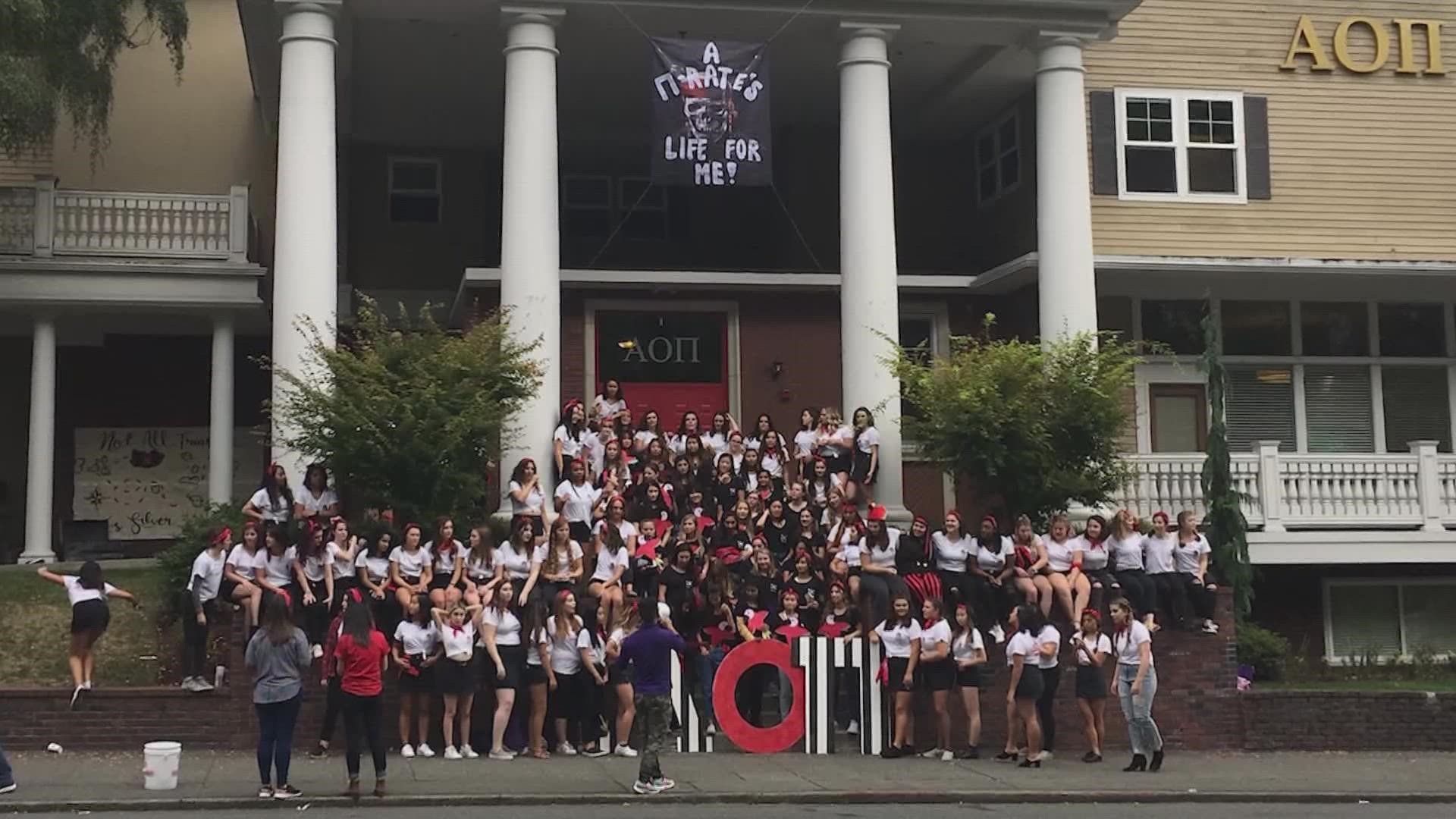OLYMPIA, Wash. — A sorority accused of charging University of Washington students for housing they couldn’t stay in during the beginning of the coronavirus pandemic will pay just over $250,000 in relief, the Washington state Attorney General's Office announced Wednesday.
According to a statement from Attorney General Bob Ferguson, Alpha Omicron Pi, a national sorority based out of Tennessee, charged the students thousands in 2020 and 2021, despite the students not being able to access the housing. That, according to Ferguson, was a violation of Gov. Jay Inslee's emergency eviction moratorium.
“This sorority took advantage of students, charging them thousands of dollars for housing they could not access or use,” Ferguson said in a statement.
Ferguson's office learned of the issue after 13 UW students came forward. The sorority charged more than 60 students unlawful housing fees, according to Ferguson.
The sorority continues to deny wrongdoing in the consent decree. In a statement, the sorority said the Upsilon Chapter house was always available to its members, but members chose not to live there. The sorority argues it implemented all necessary COVID-19 recommendations. The sorority states there were never threats of collections or debt enforcement at any time.
"This case arose from unrealistic Chapter member expectations due to changed circumstances brought about by the pandemic," the sorority's statement reads. "Socializing usually associated with college life was entirely changed by the pandemic with social distancing and mask wearing measures in place."
The sorority's statement said Upsilon Chapter members chose to not live at the house during the pandemic. They asked the sorority to temporarily close it for the 2020-21 school year and amend agreements to reduce fees, according to the sorority.
"The sorority, after full disclosure of all costs and acceptance of the costs by vote of the Chapter members, agreed to accommodate the members’ request even though this constituted a significant financial burden for the nonprofit," the statement reads.
Sorority members agreed to pay for housing and meals in early 2020, according to the state’s lawsuit. When the pandemic hit, the sorority “drastically reduced” the number of students who could live in the house. The sorority later gave members the option of closing the house entirely, which they voted to do, but still charged them fees, the state alleged.
After warnings that their unpaid fees could end up in collections, sorority members said they felt intense pressure to pay.
Under the consent decree, the sorority will waive or reimburse most fees charged to each member.
The sorority will pay a total of $253,600 to the Attorney General’s Office, which will pay back the students.
When including both sorority payment and waived fees, the agreement amounts to about $500,000, according to the Attorney General’s Office.

